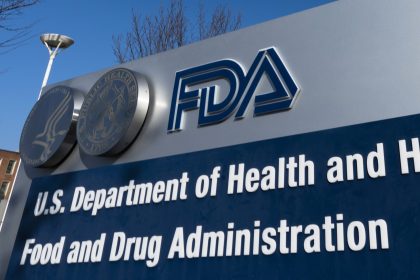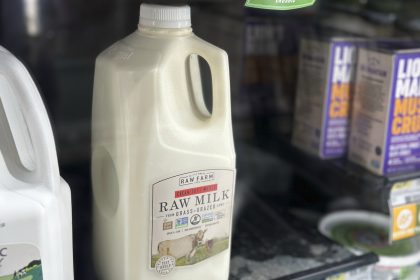Breaking Down the Plant-Based Diet

WASHINGTON — Does the word “diet” have a negative connotation to you? It often gets attached to quick fixes or unsustainable plans that promise to help you “detox” or lose weight. The popular “plant-based diet” may be the one exception. One interpretation simply means eating more fruits, vegetables and foods growing on the earth. Other versions may be less helpful.
Let’s break it all down. We’ll explain the different types of plant-based diets, look at the pros and cons and summarize the current research on how going “plant-based” can impact your health.
Types of Plant-Based Diets
What exactly does a plant-based diet entail? It may sound like cutting out all animal products; and some people use it to mean that. Others use it as a term to “base” their diet around plant foods but still include some animal products. Here are a few different ways to be plant-based:
- Vegetarian: A vegetarian diet, or lacto-ovo diet, includes eggs, dairy products and plant-based foods.
- Vegan: A vegan diet restricts all animal-based foods, including meat, dairy, eggs and honey.
- Pescetarian: A pescetarian follows a vegetarian diet but includes fish and seafood. One popular version of this is the Mediterranean diet.
- Flexitarian: A flexitarian centers their diet around plant-based foods but occasionally eats animal-based foods like meat, fish and dairy.
- Whole Foods, Plant-Based (WFPB): The WFPB diet means that most of your diet comes from whole foods, meaning no processed or fast food. This distinction likely came about because while being a vegetarian or vegan sounds healthy, you can do it by eating all processed foods and miss out on nutrients.
Pros and Cons of a Plant-Based Diet
Considering if a plant-based diet is for you? Here are a few pros and cons of adopting a vegetarian or vegan diet. There are no real downsides to adding more plant-based whole foods to your current diet.
Pros:
- Nutrient-Dense: Fruits, vegetables, legumes and whole grains are packed with tons of vitamins, minerals, micronutrients and phytonutrients. Eating whole foods of different colors contain different antioxidants and health-boosting components. These foods can boost your immune system and heart health.
- May Lower Disease Risk: Research shows that adding healthy plant-based foods to your diet may lower your risk of cardiovascular disease and all-cause mortality.
- Animal Friendly: Many people adopt a vegetarian or vegan diet because they care about animals. Although many products advertise that they treat animals humanely, there is no legal standard companies have to meet to make those claims.
Cons:
- May Miss Out On Nutrients: While plant-based foods contain many nutrients, cutting out all animal products may lead you to miss out on a few. Some nutrients like creatine, omega-3s and vitamin B12, are only found in animal products. Getting enough protein may also be challenging, but it is still possible.
- Processed Substitutes: One study that states that a “healthy” plant-based diet can lower your disease risk also indicates that eating an “unhealthy” plant-based diet can increase your disease and mortality risk. Simply cutting out animal products but eating many processed foods with unknown additives may still harm your health.
- May Feel Restrictive: Any diet that excludes a whole food group can feel restrictive and challenging. Of course, many people are lifelong vegetarians and vegans with no problem. It may not work for you if you don’t have a health or moral reason to cut out all animal products.
How a Plant-Based Diet Impacts Your Health
Let’s look at recent research on how going plant-based can impact your health.
Health Research:
- Heart Health: The American Heart Association cites several studies that suggest eating a plant-centered diet (not necessarily cutting out all meat) lowers your risk of stroke, heart attack, heart failure and other cardiovascular diseases. It also helps lower cholesterol levels, keeping your arteries healthy.
- Plant-Based Protein Benefits: A 2020 meta-analysis compared different types of dietary proteins and their link with cardiovascular disease and mortality. They found that increasing plant protein from sources like soy, legumes, lentils, beans, nuts and seeds may help decrease your risk of death.
- Type 2 Diabetes: Several studies suggest a plant-based diet may help prevent and manage type 2 diabetes.
- Mediterranean Diet: Research shows the Mediterranean diet can improve cardiovascular health and reduce your risk of high blood pressure, obesity, metabolic diseases and cognitive and neurodegenerative disorders. It may also improve mental health, helping to treat symptoms of anxiety and depression.
The Mediterranean diet is the least restrictive and focuses on whole, plant-based foods and healthy fats instead of only eliminating animal products. There is a lot of research behind it, and it can be the easiest to incorporate. Here’s what to focus on if you want to try it out:
- Vegetables, fruits, lentils, beans, nuts, and seeds.
- Whole grains.
- Extra virgin olive oil.
- Fish, like salmon, with omega-3 fatty acids.
- Some cheese, yogurt and eggs.
- Poultry (chicken and turkey) up to once a day.
- Red meat up to once a week.
- Homemade baked goods up to three times per week.
- If you currently drink wine, one to two glasses per day is the recommendation. If you don’t currently drink, the American Heart Association recommends not starting.
Eat More Plants
Whether you’re looking to stop eating animal products or just want more nutrients from your food, you can’t go wrong with increasing your plant intake. A common misconception about a vegetarian or vegan diet is that you will be “healthier” by cutting out meat. You also have to add in plenty of vegetables, fruits, legumes, beans and whole grains for optimal health.
You can reach us at [email protected] and follow us on Facebook and X (formerly known as Twitter)

























